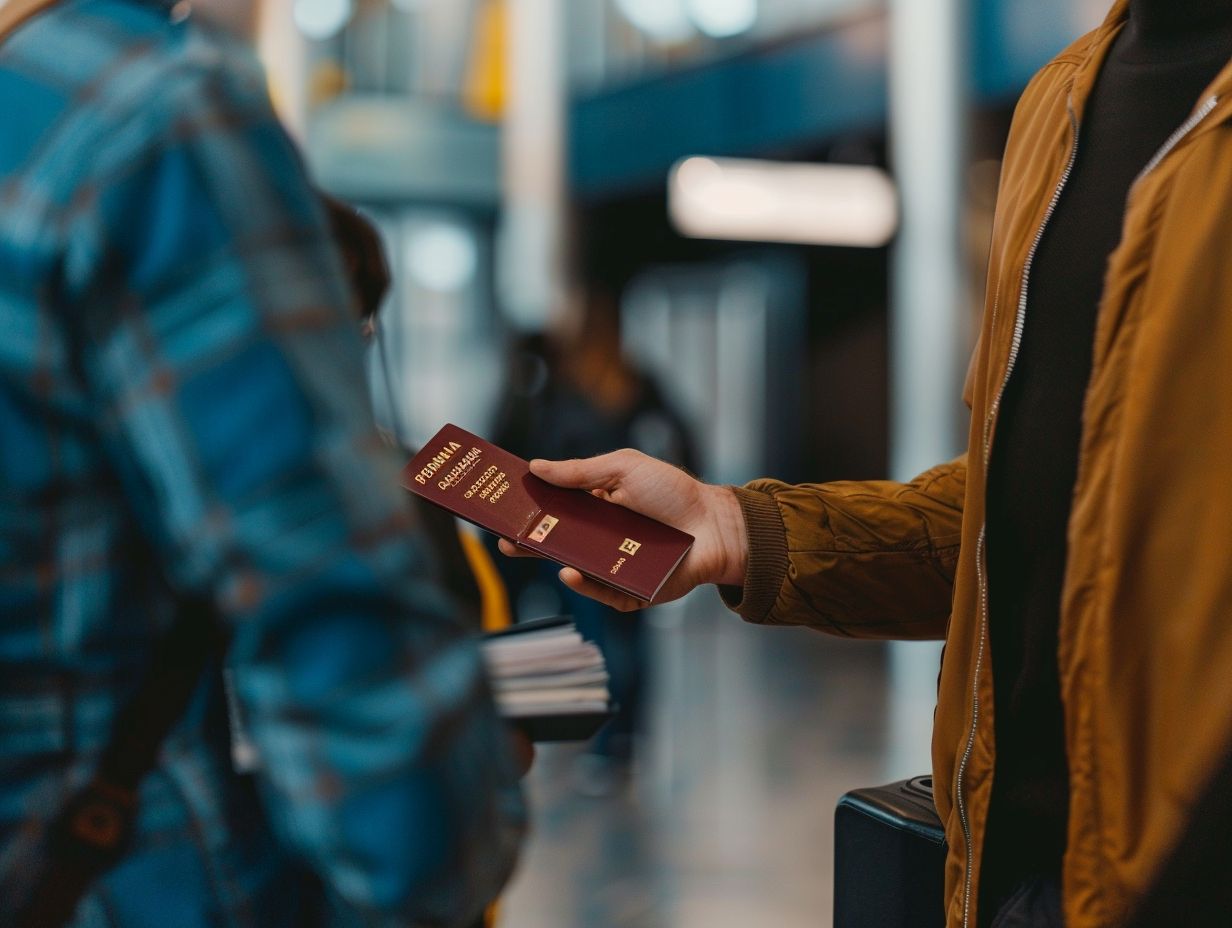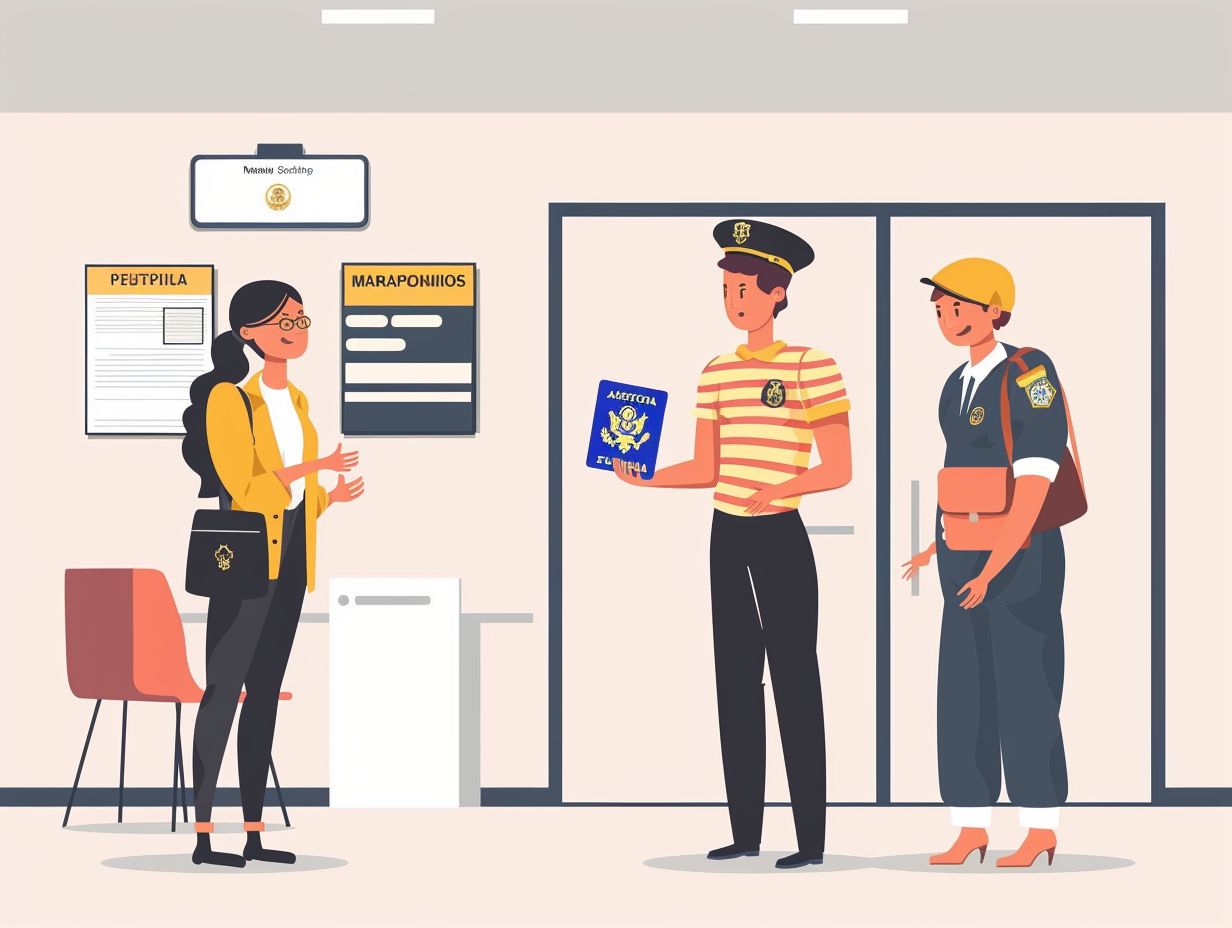If you’re thinking about renewing or extending your visa while in the United States, it’s important to know the ins and outs of the process to make sure your application goes smoothly.
In this detailed guide, we’ll walk you through what it involves, who’s eligible, the steps you need to take, reasons why visas get denied, other options you might have, and tips for making sure your application is a success.
Get ready for some expert advice and real-world insights from experienced travelers to help you handle this crucial process like a pro.
Understanding Visa Renewal and Extension

If you’re a foreign national in the United States, understanding visa renewal and extension is key to keeping your lawful presence intact, especially if you’re on a non-immigrant visa. Let’s walk through the legal processes, documentation, and status requirements together to make sure your visa renewal or extension goes off without a hitch.
What is Visa Renewal and Extension?
In terms of visa renewal and extension, you’re looking at the processes that let you renew your visa before it expires or extend your stay in the United States past the original timeframe.
So, if you’re renewing your visa, you’re basically asking for a brand-spanking-new visa with a later expiration date, usually in the same visa category. This means updating your documentation and maybe even hitting up a U.S. consulate or embassy for an interview.
But if you’re more interested in extending your stay in the U.S., that’s all about stretching out your time here beyond what your current visa allowed. It’s super important to wrap your head around how visa renewal and extension can affect your legal status and whether you’re playing by all the visa rulebooks.
Eligibility for Visa Renewal and Extension
When you’re a non-immigrant visa holder looking to keep your lawful status in the United States, figuring out if you’re eligible for a visa renewal or extension is a crucial move.
Requirements and Criteria
When renewing or extending your visa, you need to meet specific eligibility rules, provide proof of continued eligibility, and submit supporting documents to prove your status and intention to stay in the country.
To be eligible, you must show that you haven’t violated your current visa terms, have a valid passport, maintain a clean criminal record, and meet any other conditions set by immigration authorities. Renewing your visa usually involves filling out forms, paying fees, and attending interviews or appointments.
It’s crucial to provide accurate and updated supporting documents like employment verification, proof of financial stability, and accommodation details to support your request. Making sure your documents are complete and correct is key to getting your visa approved, as any misleading information could lead to denials or legal trouble. Paying attention to details and following the requirements will help keep your visa status valid and legit.
Steps to Renew or Extend Your Visa

When renewing or extending your visa, you’ll need to go through a structured application process. This means you’ll have to submit different forms and documentation to the USCIS or the consulate handling your case.
Application Process and Documents Needed
When renewing or extending your visa, you’ll need to fill out the visa renewal form and gather all the necessary supporting documents. Make sure to include proof of financial means, a valid passport, a recent photo that meets the requirements, and any other specific documents related to your visa type. It’s super important to double-check that all your documents are up-to-date and accurate to prevent any processing delays.
Don’t forget to pay the visa application fee, which can vary based on the visa type and where you’re applying from. You’ll usually have to make the payment through the specific channels designated by the consulate or embassy handling your application. Just make sure you follow the instructions carefully to keep everything smooth sailing!
Common Reasons for Visa Denial
To avoid running into trouble during your visa renewal or extension, you should grasp the common reasons why visas get denied. Make sure you cover all your bases by thoroughly addressing eligibility requirements and documentation before submitting everything to the consulate or heading into the interview.
Factors That Can Affect Your Application
In terms of renewing or extending your visa, there are a few things you need to watch out for. Your application could be affected by various factors, like mistakes in your paperwork, not meeting the eligibility requirements, or running into issues during the USCIS review or consulate interview.
For instance, simple errors in your documents, such as missing signatures or wrong dates, could be the reason your application gets denied. Also, if you don’t provide enough evidence of financial stability or fail to meet specific visa requirements, your application might be rejected.
To lower the chances of these setbacks, make sure all your documents are complete, accurate, and current. Give everything a once-over before submitting to catch any errors that could lead to complications. If you’re feeling unsure, don’t hesitate to reach out to immigration pros or legal experts for guidance. They can help you navigate the complex visa application process smoothly and improve your odds of approval.
Alternatives to Renewing or Extending Your Visa

When you’re looking for options other than renewing or extending your visa, consider exploring alternatives that could work for you. You might want to think about applying for a change of status or checking out different visa categories and options that align with your current situation.
Exploring Other Options
If you’re unable to renew or extend your visa, you have a few other options to consider. You could apply for a change of status or look into adjusting your status to a different visa category that fits your qualifications and goals.
If you find yourself in this situation, take some time to carefully assess your circumstances and figure out which option makes the most sense for you. For those thinking about a change of status, make sure you understand the specific requirements for each category available and check that you meet all the necessary criteria.
On the other hand, if you’re leaning towards an adjustment of status, be ready to gather the required documentation and evidence to support your eligibility for the new visa type. Getting advice from immigration professionals or lawyers can be a big help in navigating this tricky process.
Tips for a Successful Visa Renewal or Extension
If you want to nail that visa renewal or extension, you’re going to need to:
- Plan ahead
- Know those processing times inside and out
- Get all prepped for biometrics and interviews
- Maybe even think about getting some help from an immigration lawyer
Advice from Experts and Experienced Travelers
Listening to expert advice and insights from experienced travelers like yourself can really level up your understanding of the visa renewal or extension process. It’ll make navigating the application process and sorting out all those documentation requirements a whole lot easier for you.
They can’t stress enough how important it is to go through all the necessary forms with a fine-tooth comb and make sure every document is current and correct before you hit submit. It’s a smart move to plan ahead because processing times can be all over the map depending on the country and the type of visa you’re going for.
Legal experts say that if you come across any tricky legal issues like past denials or overstays, it’s best to seek professional help to steer clear of any complications or potential rejection. By following these tips, you can streamline your visa renewal or extension process and up your chances of success.
Frequently Asked Questions

What is the process for renewing and extending my visa while in the United States?
The process for renewing and extending a visa while in the United States can vary depending on the type of visa you have. Generally, it involves filling out an application, providing supporting documents, and paying a fee. It is important to check the specific requirements for your visa type and start the process at least 6 months before your current visa expires.
Can I renew or extend my visa if I have already overstayed my initial entry period?
It is possible to renew or extend your visa even if you have overstayed your initial entry period. However, you may need to provide a valid reason for your overstay and may face additional scrutiny during the application process. It is best to consult with an immigration attorney for guidance in this situation.
Do I need to appear for an interview when renewing or extending my visa?
In most cases, applicants for visa renewal or extension will need to appear for an interview at a U.S. embassy or consulate. However, the interviewing officer has the discretion to waive the interview requirement for certain visa categories, such as H-1B and L-1.
How long can I stay in the United States with a renewed or extended visa?
The length of time you can stay in the United States with a renewed or extended visa will depend on your visa type and the discretion of the examining officer. Generally, visas can be renewed or extended for up to 6 months to a year at a time. However, some visa categories may allow for longer stays.
What are the consequences if my visa renewal or extension is denied?
If your visa renewal or extension is denied, you may be required to leave the United States immediately. You may also face difficulties in obtaining future visas and may be subject to a bar from re-entering the United States. It is important to carefully follow all instructions and guidelines when applying for a visa renewal or extension to avoid a denial.
Can I travel outside of the United States while my visa renewal or extension is being processed?
It is generally not recommended to travel outside of the United States while your visa renewal or extension is being processed. If you leave the country, your application will be considered abandoned and you will have to start the process over. However, there are some exceptions for certain visa categories, such as H and L visas, which allow for travel while an extension is pending. It is best to consult with an immigration attorney for guidance in this situation.